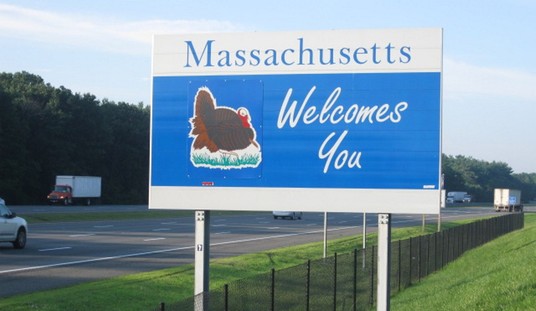During his upcoming trip to Saudi Arabia, President Donald Trump is set to announce a symbolic gesture aimed at strengthening ties with Gulf nations by referring to the Persian Gulf as the Arabian Gulf or Gulf of Arabia in official U.S. communications, according to sources familiar with the plan. This decision, which aligns with the preferences of several Arab countries, reflects the administration’s efforts to foster closer collaboration with key regional allies.
According to the Associated Press, U.S. President Trump intends to announce during his trip next week to Saudi Arabia, that the United States will now officially refer to the Persian Gulf as the Arabian Gulf or the Gulf of Arabia, moving away from the historical naming of the… pic.twitter.com/Wp75tbRDQz
— OSINTdefender (@sentdefender) May 7, 2025
The body of water, historically known as the Persian Gulf since the 16th century, has been a point of cultural and diplomatic significance. Many Middle Eastern nations, including Saudi Arabia, Qatar, and the United Arab Emirates, favor the term “Arabian Gulf,” while Iran emphasizes its historical connection to the name “Persian Gulf.” The U.S. military has already adopted “Arabian Gulf” in its communications, and this move would formalize that practice across U.S. government channels.
Trump’s announcement is part of a broader strategy to deepen economic and diplomatic ties with Gulf countries. His itinerary includes stops in Doha, Qatar, and Abu Dhabi, UAE, where discussions will focus on attracting investment to the U.S., supporting regional stability, and addressing shared concerns such as the Israel-Hamas conflict and Iran’s nuclear ambitions. By embracing the term “Arabian Gulf,” the administration aims to signal respect for the perspectives of its Gulf partners, reinforcing a spirit of cooperation.
«sinus arabicus»
— كاسح 🇸🇦 (@ric9e) May 7, 2025
The Arabs through out the history until today live near this gulf thats why it should be called Arabian Gulf
Another evidence Persians didn’t have any navy or ships as us they live near central Asia or East Iran pic.twitter.com/MB3oeV9Xxx
RELATED: Winning BIGLY: United Arab Emirates Commits to $1.4 Trillion Investment Framework in US
Trump Announces Senior Adviser on Middle Eastern Affairs - One the Left Will Surely Gripe About
The decision has sparked varied reactions. For many in the Gulf region, the name change is a welcome acknowledgment of their cultural identity. Meanwhile, Iran has historically viewed the term “Persian Gulf” as a reflection of its heritage, with officials in the past urging global consistency in its use. The International Hydrographic Organization, which standardizes names for bodies of water, allows for regional variations, meaning countries can use different names in their own documentation without affecting global standards.
It is already sometimes referred to as the Gulf of Arabia, or the Arabian Gulf.
— Julie 📚🎨🎶⚾️🟧🟦 (@TruBluBrewCru) May 7, 2025
This is not a new concept.
This announcement follows Trump’s earlier proposal to rename the Gulf of Mexico to the “Gulf of America,” a move that underscored his administration’s focus on rebranding geographic terms to align with national or regional priorities. While such changes apply only to U.S. communications and do not dictate global usage, they carry symbolic weight in diplomatic relations.
The Associated Press, which faced temporary restrictions from the White House over its refusal to adopt the “Gulf of America” name, successfully challenged the ban in court. A federal judge ruled in favor of the outlet, affirming that media outlets are protected from government retaliation over editorial choices under the First Amendment. (Yet they'll probably sue about this, too, because they think their AP rules are important.)
As Trump embarks on this trip, his administration is framing the name change as a step toward unity with Gulf allies. By aligning with their preferred terminology, the U.S. seeks to build trust and pave the way for collaborative efforts on economic growth and regional security. The move underscores the power of symbolic gestures in diplomacy, as the U.S. works to strengthen its partnerships in a dynamic and strategically vital region.
Editor’s Note: Every single day, here at RedState, we will stand up and FIGHT, FIGHT, FIGHT against the radical left and deliver the conservative reporting our readers deserve.
Help us continue to tell the truth about the Trump administration and its major wins. Join RedState VIP and use promo code FIGHT to get 60% off your membership.














Join the conversation as a VIP Member